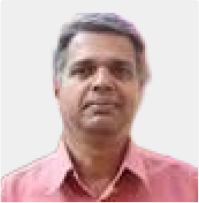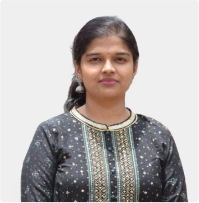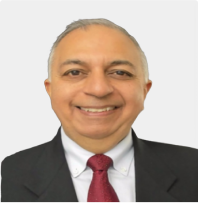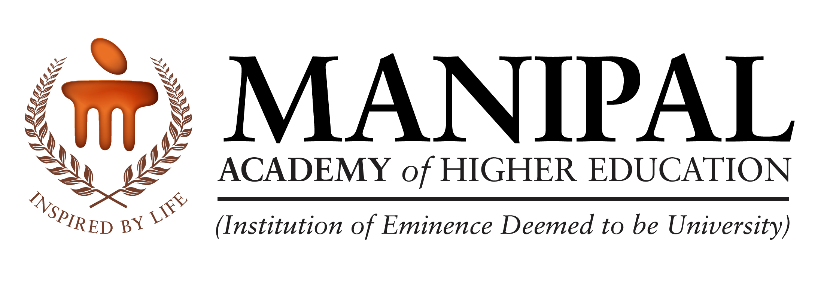



Health and Climate Change: Person to planet
Health of individuals and communities are interconnected with the health of ecosystem in which they live. These ecosystems can be altered by natural and man-made acts. Such natural and man-made activities can change the climate of localities. The changes in climate can result in the rise of sea-level, excessive or absence of rains, variations in the biodiversity, spread of infectious diseases, production and availability of food products, and lifestyle and mental health of persons, plants and animals. These interactions between human, animal, plants and environment can affect the health conditions of living organisms. Understanding the relationship between climate change and health is crucial to minimize disease burden, and to create a healthy planet for all to live-in. Prevention and promotion of health of individuals and community, protection of our planet’s health, preparations to face the effects of changing climatic conditions, and protection living organisms from diseases gained considerable recognition in the recent times.
This two-credit course offered by the Department of Global Public Health Policy and Governance, Prasanna School of Public Health, Manipal Academy of Higher Education offers an opportunity to understand how individual actions and societal decisions play a pivotal role in shaping both our health and the environment. This is crucial to make sustainable choices and advocating for systemic changes and joint actions across the globe to protect the planet, safeguard our own health and well-being through a holistic approach, through the understanding that human health and planetary health are intrinsically linked. This course promote the students to promote interdisciplinary thinking, influence the policy makers and people, developing innovative and locally suitable innovative solutions, engagement in policy development and participate in global networking. Case studies, interactive sessions from experts, and other resources and materials will equip the participants to build a sustainable and healthy ecosystems for future generations to live.
Learning Outcomes
On completion, students will be able to:
- Understand the connection between climate change and health of human, animals, plants, and environment
- Assess short and long term health effects due to climate change, and how it affects different regions and population groups
- Explore global and local practices and policies to reduce the health risks due to climate change.
- Prepare people and systems to address and respond to the challenges through networking for innovative and feasible solutions
Course Content (Academic schedule)
Name of the Coordinator: Dr Cherian Varghese and Dr Prakash Narayanan
Time: 9.00 am – 1.00 pm
| Day | Program | Content | Learning Outcome |
| Day 0 | Arrival | ||
| Day 1 | Introduction to Climate Change (CH) | Global warming, greenhouse gases, Global and regional trends in climatic conditions, causes (deforestation, industries, urbanisation, agriculture and energy) of CH, natural and man-made disasters | LO1 |
| Day 2 | CH and environmental effects | Increased temperature, humidity, precipitation, extreme events such as heatwaves, wildfire, sea-level rise, droughts, torrential rains, water quality, air pollution | LO1 |
| Day 3 | Health impacts of CH | Health challenges and changes due to exposure to CH; Direct impacts such as stress, injuries and accidents; Communicable diseases, malnutrition, food insecurity and food safety; Non communicable and respiratory diseases; Mental health; and Rehabilitation and adaptation stress | LO1, LO2 |
| Day 4 | Short and long term health effects due to CH | Short term effects: heatstroke, respiratory and cardiovascular stress, vector borne disease outbreaks, floods and droughts, disruption of services and medication Long term: chronic respiratory diseases, cancer, food and water insecurity, changes in vectors, neurological diseases |
LO2 |
| Day 5 | Health equity and CH | Vulnerable groups for CH; gender, class, location, pre-existing health conditions; economic loss, displacement, adapting new technologies; rights and justice, advocacy, support systems. Assessment of vulnerability, health effects, and response mechanisms in community and healthcare institutions |
LO2 |
| Saturday Sunday |
Weekend | ||
| Day 6 | Policies and practices to reduce the health risks | Local and feasible mitigation practices, social and technological innovations, policies and preparedness to address health effects and inequity and vulnerability. Heat action plans, urban planning and preparation of climate resilient communities. Methods to monitor climate change preparedness in communities and healthcare facilities |
LO3 |
| Day 7 | Methods to monitor climate change preparedness in communities and healthcare facilities | Global, regional and local policies and frameworks, WHO and UN guidelines, Disaster management planning. Renewable energy, low carbon emission technologies, green infrastructure, mobility, quality and availability of clean air-water-food. | LO3, LO4 |
| Day 8 | Multisectoral collaboration for climate health | Importance and role of cross-sectoral collaborations, Developing climate-resilient systems (infrastructure, early warning, and emergency response systems). Awareness creation and capacity building at local level. Advocacy and networking. International cooperation and funding mechanisms to support climate and environment improvements Education and capacity building of professionals and community members |
LO4 |
| Day 9 | Looking forward: health and climate | Actions needed to address the complexity of health due to CH in future. Innovative climate action approaches and solutions, surveillance and research, preparedness and plans, reducing inequity, emergencies and outbreak detection and support systems | LO4 |
| Day 10 | Generation of evidence | Discussion on how to generate evidences on interconnectedness of CH and health, interventions that can improve health of planet and people. | LO1, LO2, LO3 |
| Saturday Sunday |
Closure & Departure |
Program Highlights
- The two-credit course offered by the Department of Global Public Health Policy and Governance, Prasanna School of Public Health, Manipal Academy of Higher Education provide a comprehensive understanding on the interconnectedness and complexities of Health and Climate Change: Person to planet.
- Students from all streams of learning can participate.
- Lectures handled by experienced faculties from diverse disciplines such as Public health, Doctors, and Government officials working in Health as well as Veterinary offices.
- Simulation exercise on outbreak response – https://www.ready-initiative.org/outbreak-digital-simulation/
- Case studies from regions (e.g., Bangladesh flooding, California wildfires)
- Opportunity for community based climate-health risk assessment in an around Manipal
- Field visit and interactions with Government officials working on Vector borne disease control, Veterinary health officer
Fee Details
The Program fee is USD 955 (Appx).
- Breakfast and Lunch on all working days
- Internal Transport
- Medicare and Wi-Fi
- Flight Tickets
- Travel other than that specified in Program
- Essential linear algebra for deep learning
- Fundamentals of linear classification: weights, bias, scores, and loss functions
- Calculus for the gradient descent algorithm
- Forward and backward propagation with regularization
- Batch processing for large datasets
- Linear to nonlinear classification via activation functions
- Computational setup of a shallow neural network
- Tuning neural network performance
- Pre-processing data and batch normalization
- Cross-validation for validating model performance
- Extending the computational setup from a shallow to a deep neural network
- Introduction to the TensorFlow library
- Application projects: implementing shallow and deep neural network models using TensorFlow; implementing machine learning models on edge devices using Edge Impulse.
Pre-requisites
- Laptop with stable internet connectivity
Cordinator Details
- Prakash Narayanan PhD.
- Professor, Department of Global Public Health Policy & Governance
- PhD Coordinator, Prasanna School of Public Health
- Manipal Academy of Higher Education, Manipal
- Office: +91-820 2922 473 | Mob: +91-9686 570 750
- prakash.nvp@manipal.edu
Name of the Coordinator



Distinctive Features
- Opportunity for community based climate-health risk assessment in an around Manipal
- Field visit and interactions with Government officials working on Vector borne disease control, Veterinary health officer
- Case studies from regions (e.g., Bangladesh flooding, California wildfires)
Offered by
Prasanna School of Public Health
